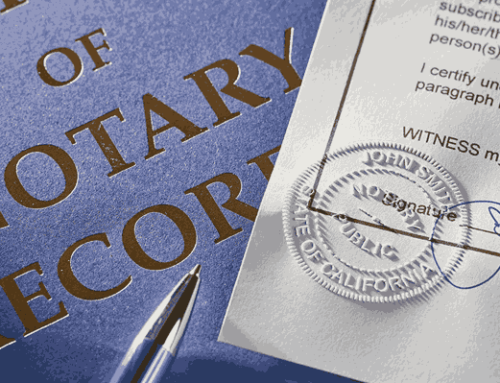Introduction
In our fast-paced era, industries must adapt quickly to technological advancements and changing landscapes to stay competitive. Some experts believe AI-driven tools can take over nearly 25% of a lawyer’s daily tasks.
The legal sector is no exception to this rule. The advent of AI equips legal teams with a potent tool. It boosts efficiency and enables agile navigation of changes with unmatched precision and speed.
This blog examines AI’s impact on the legal field, empowering legal teams to lead. It also underscores the role of legal tech.

The Need for Speed and Precision
The legal realm deals with complex documentation and research demands. Traditional methods lack speed and precision. AI intervenes to transform the process. AI algorithms swiftly analyze extensive legal data, aided by NLP for document comprehension, case law identification, and contract insight extraction. This accelerates legal teams’ efficiency and prevents crucial details from being lost in the information overload.
Harnessing AI for Optimal Legal Outcomes
With the advent of artificial intelligence (AI), lawyers now have a powerful ally that can significantly enhance their abilities and increase the likelihood of success.Let us know more about how AI can help lawyers achieve the best outcomes in their legal practice.
Predictive Analytics for Better Decision-Making
One of the most promising aspects of AI in the legal industry is its predictive analytics capabilities. Through historical case data analysis, AI algorithms identify trends to guide legal strategies and outcome predictions.For example, AI can help legal teams predict opposing arguments, aiding in crafting stronger counterarguments.
Predictive analytics can also play a vital role in litigation risk assessment. Analyzing past cases and judge behavior allows legal teams to make informed decisions on litigation, settlement, or alternative dispute resolution.
Enhanced Research and Case Law Analysis
Legal research is a time-consuming task that often involves sifting through countless documents and sources. AI-powered research tools can streamline this process by quickly identifying relevant case laws, statutes, and regulations. These tools can offer summaries and insights, saving legal professionals time and letting them concentrate on more valuable tasks.
Additionally, AI can assist in analyzing precedents and case law to identify emerging legal trends and developments. This proactive approach empowers legal teams to anticipate changes in legal landscapes and adjust their strategies accordingly.

Data-Driven Insights
AI’s significant contribution to the legal field lies in its capacity to analyze extensive data and extract practical insights. By utilizing AI-powered analytics tools, lawyers can uncover patterns, trends, and precedents that might otherwise go unnoticed. These insights provide a solid foundation for crafting effective legal strategies that are backed by data and historical context.
For example, AI analyzes case law databases to identify winning arguments and strategies that have been successful in similar cases. This enables lawyers to tailor their approach and arguments based on proven tactics, thereby increasing their chances of securing favorable outcomes
Enhanced Legal Research
Legal research is a fundamental aspect of law practice, but it can be time-consuming and resource-intensive. AI-powered research tools can streamline this process by sifting through numerous legal documents, statutes, and regulations to find relevant information. This not only saves time but also guarantees that lawyers access the latest and relevant information while constructing their cases.
AI can assist in locating case law that supports specific legal arguments, empowering lawyers to bolster their positions with strong precedent. This comprehensive research ensures that lawyers are well-equipped to present compelling and well-informed arguments in court.
Predictive Analytics for Strategic Planning
Predictive analytics is another area where AI shines in the legal arena. Through analyzing historical case results and legal trends, AI algorithms offer lawyers valuable insights into a case’s potential direction. This information enables lawyers to make informed decisions about settlement offers, trial strategies, and risk assessments.
AI can help lawyers assess argument success by analyzing similar case outcomes. This proactive decision-making approach enables lawyers to customize strategies that match the dynamics of the legal landscape.
Efficient Document Review
Document review is a crucial but time-consuming task in legal proceedings, especially in cases involving voluminous amounts of evidence. AI-powered document review platforms use advanced machine learning algorithms to categorize, tag, and prioritize documents based on relevance and context. This significantly speeds up the review process, allowing lawyers to concentrate on documents likely to have the greatest case impact.
Natural Language Processing for Contract Analysis
Transactional lawyers can use AI’s natural language processing capabilities for contract analysis. AI can swiftly identify key terms, potential risks, and inconsistencies in contracts, thereby aiding lawyers in negotiations and due diligence. This reduces the chances of missing critical details that would later lead to disputes or legal complications.
Ethical Considerations and Human Expertise
While AI offers remarkable capabilities, it’s important to underscore the role of human expertise and ethical considerations. Lawyers must exercise their judgment and oversight to ensure that AI-generated insights align with legal standards and ethical obligations. Human involvement is essential for interpreting complex legal concepts, understanding case details, and making strategic decisions

Contract Analysis and Due Diligence
Contracts are the backbone of legal transactions, and their careful scrutiny is essential for preventing disputes and legal complications. AI tools equipped with machine learning can review and compare contracts, highlighting inconsistencies, potential risks, and non-compliance issues. This level of analysis not only expedites due diligence processes but also minimizes the chances of oversight.
Moreover, AI can assist in extracting essential terms and conditions from contracts, allowing legal professionals to make informed decisions quickly. This is particularly useful in negotiations, where time-sensitive discussions require rapid access to crucial contract details.
Summing Up
As the legal industry continues to evolve, embracing AI technology and legal tech tools is not just a choice but a necessity.AI enables legal teams to respond to changes, use data for decisions, and focus on high-value tasks demanding human creativity. By utilizing AI and legal tech, legal experts can streamline processes, improve accuracy, and maintain an edge in the dynamic legal landscape.
In conclusion, AI is a transformative force that empowers legal teams to navigate rapid change with confidence. By using AI for contract analysis, predictive analytics, research, and more, legal professionals can boost efficiency and make better-informed decisions. By staying at the forefront of AI integration and legal tech adoption. Legal teams can maintain justice principles and navigate the intricate legal landscape with steadfast precision and foresight.





